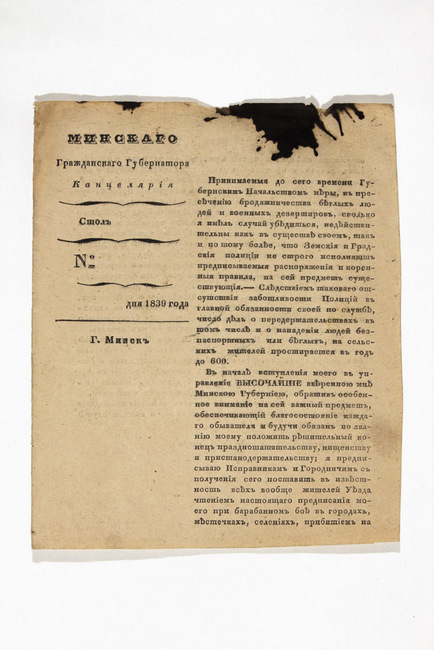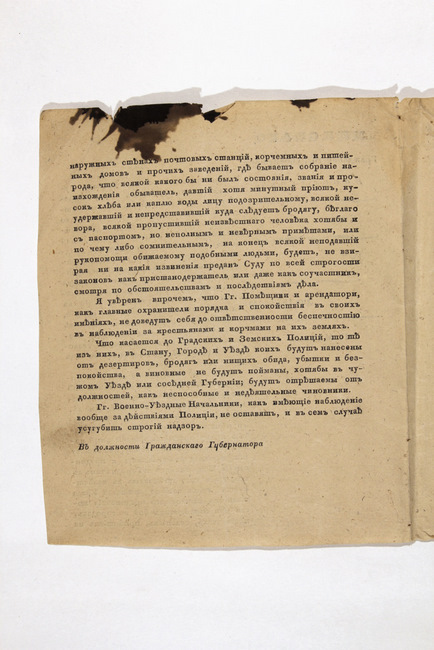Governor's order about hiding fugitives from conscription
Governor’s order about uprooting the tendency to hide fugitives from conscription, Minsk.
With the passage of NIcholas I's new law in 1827, enforcing military conscription among Jews from the ages of 12 to 25, young recruited children were separated from their families,taken to mlitary centers, often far from their homes, and often never saw their families again. While in theory the military provided for the religious rights of Jews in the army, in practice the younger Jewish cantonists were not given kosher food or encouraged to practice their religion. Russian orthodox parish priests were sent to the military centers to encourage baptism. While there was general resistance among young Jewish cantonists to the pressure to baptize to Christianity, a percentage of Jewish children and young men could not resist and accepted baptism.
The pressure to send a certain number of recruits each year and the widespread fear of children being 'snatched away' provided the motivation for young Jewish children or teenagers to run away and hide, hence the order of the Governor of Minsk discouraging fugitives. The number of Jewish children recruited as cantonists was ultimately disproportionate to the general population. For the first few decades after the passage of the 1827 law, between 2,000 to 3,000 Jewish cantonists were recruited each season.


